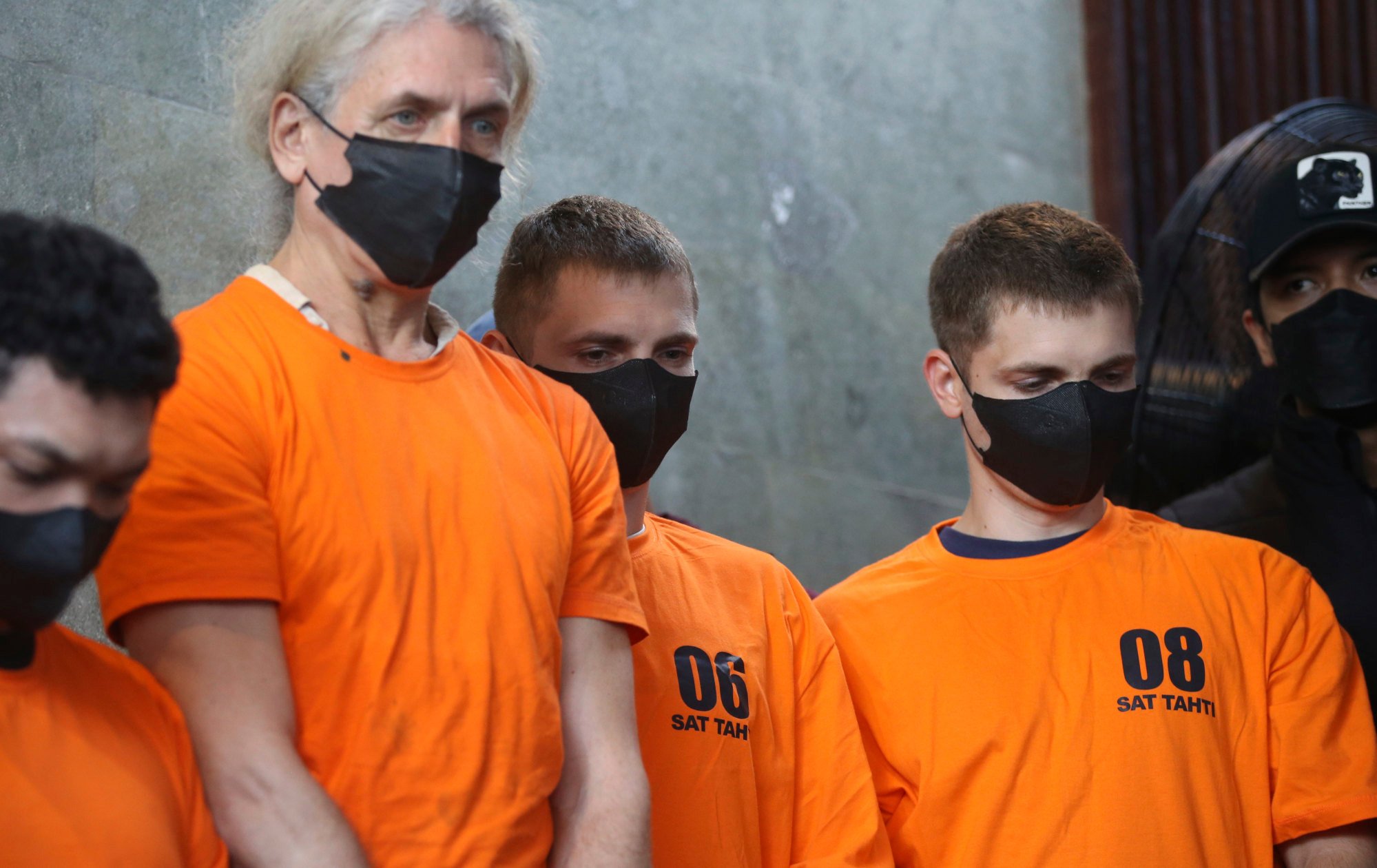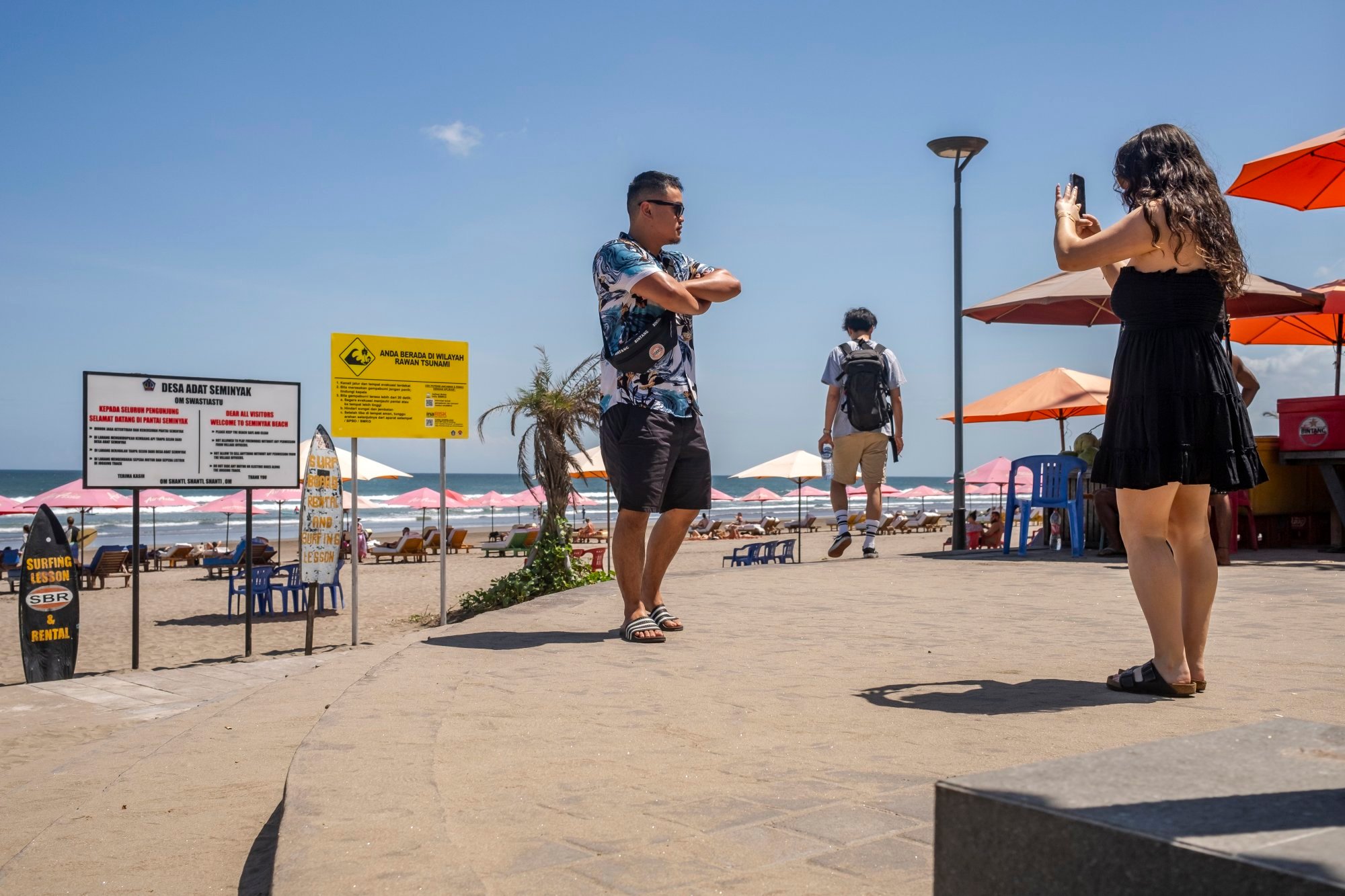
Bali police busted a drug lab run by Russians, Ukrainians. Should Indonesia execute tourists who commit serious drug crimes?
- Some Indonesians have voiced support for the drug traffickers to be executed. As of October last year, Indonesia had 509 death row inmates
- Police believe the group, comprising foreigners and an Indonesian, pocketed around four billion rupiah (US$249,171) within six months of operating out of the Canggu villa
Two Ukrainians, a Russian, and an Indonesian were arrested earlier this month for running the clandestine drug lab that police said produced hydroponic marijuana, mephedrone, and cocaine out of a villa in the hip tourist area of Canggu in southern Bali.
The Ukrainian suspects, twins Ivan and Mikhayla Volovod, had obtained investor visas in September by posing as property agents. They were believed to be responsible for manufacturing the drugs while the Russian suspect, Konstantin Krutz, was in charge of marketing, Indonesian police said on May 13.

“For drug transactions, they used the Telegram application. That [site address] was plastered everywhere, a layman would see it, and they wouldn’t know, it turns out it’s a code for people to buy [drugs],” Wahyu Widada, head of the national police criminal investigation agency, said.
If found guilty, the suspects could face a minimum punishment of five years’ imprisonment and a maximum of the death penalty, as well as a fine of up to 10 billion rupiah (US$622,000).

The drug network’s operation angered many people, including Coordinating Minister for Maritime Affairs and Investments Luhut Pandjaitan, who said last week the government would ban “problematic” tourists from returning.
“People who cause chaos in our country, foreign tourists who [use] drugs or [promote] online gambling or cause riots, should not be allowed to enter Indonesia again,” Luhut said in Bali on May 14.
“People will be comfortable coming to Indonesia if they are comfortable, they are protected from crimes such as drugs. Next week, I will call a meeting to develop a rule so that it is enforced.”
He added that problematic tourists included those who abuse permits, such as limited stay permits or investor visas, and are involved in drug cases.
Indonesia’s immigration office last year deported 340 foreigners from Bali, up from 188 in 2022, for abusing their residency permits, overstaying, and involvement in criminal cases, according to the Bali’s office of law and human rights.
Tourism and Creative Economy Minister Sandiaga Uno said on May 13 the drug lab’s operation was an “intolerable” offence that could dent Indonesia’s image as a tourist destination.
The drug bust has exacerbated the negative perception of Russian and Ukrainian tourists among Indonesians, with some calling for their blacklisting.
Death penalty debate
The case has also renewed the debate on the death penalty in Indonesia, which already has some of the world’s harshest punishments on drug offences.
As of October last year, there were 509 death row inmates across correctional institutions and detention centres in Indonesia, with drug offenders accounting for some 69 per cent, according to data from the Jakarta-based Institute for Criminal Justice Reform.
Indonesia has had an unofficial moratorium on carrying out capital punishments following widespread international backlash over some of its executions, with the last one occurring in 2016.
In the wake of the drug lab bust, some commenters have voiced support for drug traffickers to be executed. They include Ni Luh Djelantik, a senator-elect from Bali and an entrepreneur known for exposing misbehaving tourists on the island.
“I’m all for the death sentence, I support the death sentence,” she says in a video posted on her Instagram account on Monday.
Instagram user @bule_bolang wrote in a comment on the video: “People claim the death sentence is wrong, but they need to realise it’s a deterrent! It’s meant to be so extreme that it stops you from doing it in the first place. Having seen the effects of wide scale drug abuse … I absolutely agree with what she says.”
Anti-death penalty activists say Indonesia’s tough laws have not deterred traffickers. On April 30, a Ukrainian tourist was caught smuggling 200 grams of cocaine at the Bali airport. Last week, an Australian man was arrested for allegedly consuming and attempting to sell crystal meth, Bali police said.
“The government always says the death penalty has a deterrent effect, but that’s impossible, it doesn’t make sense, the trafficking of narcotics still exists because [law enforcement] target the wrong people,” said Yosua Oktavian, case handling coordinator at the Community Legal Aid Institute, a civil organisation in the Network Against the Death Penalty advocacy group.
In Indonesia, the drug law often ensnares vulnerable people, such as “the poor or people that lack higher education that fall victims to deception”, he said.


